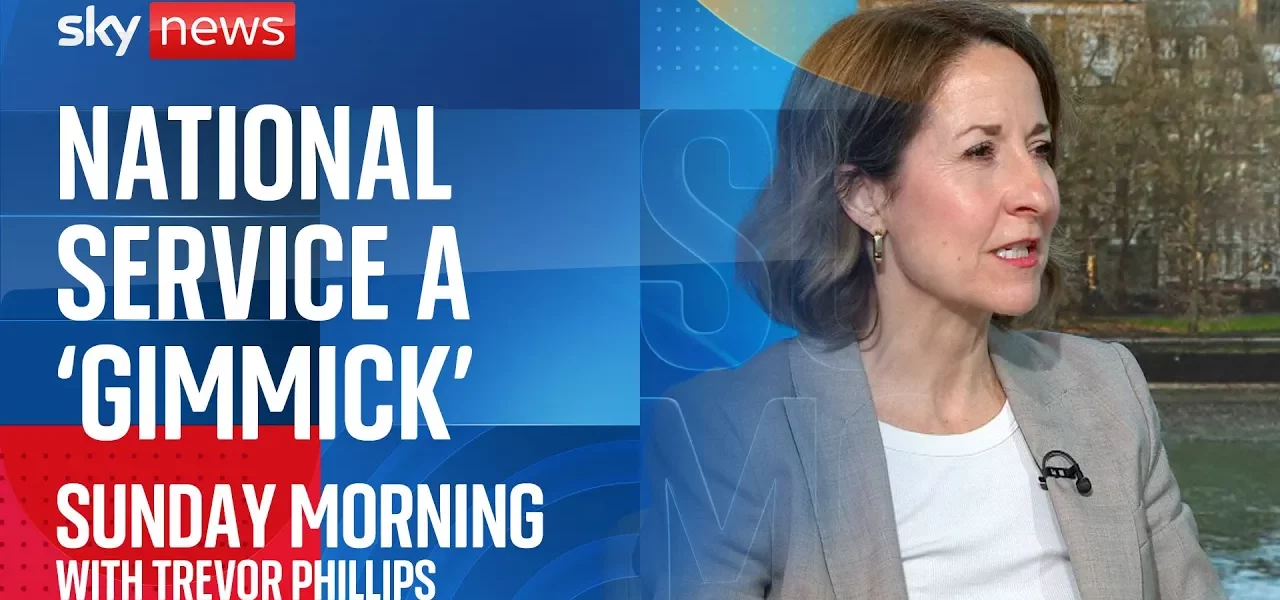UK Government’s National Service Proposal: A Comprehensive Analysis

This article delves deep into the recent discussions surrounding the UK government’s proposal for a national service program, examining its implications for young people, funding sources, and the contrasting views of political parties.
Introduction
The UK government’s proposal for a national service program has sparked significant debate across the political landscape. While the Conservatives tout it as a step towards unifying the country and providing young people with opportunities, the Labour Party has raised concerns regarding its funding and effectiveness. This article will explore the various arguments surrounding the national service proposal, its potential impact on young people, and the broader implications for society.
The National Service Proposal: An Overview
The concept of mandatory national service is not new and has been implemented in various forms across countries such as Norway, Denmark, and South Korea. The UK government’s recent announcement has reignited discussions about its feasibility and necessity.
Historical Context of National Service
National service has been historically employed as a means to foster unity and provide young individuals with skills. Key points include:
- Post-war reconstruction in countries like Sweden.
- Modern adaptations in nations such as Switzerland and France.
- Common goals of social cohesion and skill development.
Current Proposal Details
The UK government claims the program will cost approximately £2.5 billion, funded through the leveling up fund. However, critics argue that this is merely a headline-grabbing gimmick, lacking a solid plan for implementation.
Political Reactions to the Proposal
The proposal has drawn sharp criticism from the Labour Party, which argues that the Conservatives are making unfunded commitments without addressing the real challenges facing young people today.
Labour’s Position
Labour leaders have emphasized that young people need real opportunities rather than superficial programs. They propose a fully costed plan aimed at:
- Providing access to quality education and skills training.
- Facilitating entry into the job market with stable employment.
- Ensuring affordable housing options for young individuals.
Conservative Counterarguments
The Conservative Party defends the proposal as a solution to societal fragmentation and emphasizes the importance of community bonding through shared experiences.
Funding and Economic Implications
One of the main contentious points is the source of funding for the national service proposal. Critics argue it diverts resources from essential services like the NHS.
Funding Sources Explained
The government suggests that the program will be financed through the UK Prosperity Fund, intended to tackle economic inactivity. This has raised questions about the program’s sustainability and prioritization of funds.
Impact on Public Services
Experts warn that diverting funds to a national service could undermine critical public services that are already under strain. Key considerations include:
- Increased wait times for NHS services.
- Potential reduction in police funding amidst rising crime rates.
- Challenges in maintaining social care reform efforts.
The Role of Young People in Society
Young individuals are at the heart of this debate, and their perspectives are crucial in evaluating the national service proposal.
Desires for Skills and Employment
Many young people express a strong desire for meaningful employment opportunities and skill development rather than obligatory service. This sentiment is echoed by:
- Concerns about job availability post-service.
- Desire for financial independence and home ownership.
- A call for programs that genuinely enhance employability.
Social Cohesion and Community Building
While the government argues that national service could foster social cohesion, critics assert that true unity comes from equitable opportunities rather than mandated service. Effective community-building initiatives should focus on:
- Enhancing local community engagement.
- Investing in youth-led projects and initiatives.
- Providing platforms for young voices in decision-making processes.
Conclusion
The debate surrounding the UK government’s national service proposal highlights significant divides in political ideology and priorities. While the Conservatives advocate for a program aimed at unifying society and addressing youth concerns, Labour presents a counter-narrative focused on sustainable, funded plans that offer genuine opportunities for young people. As this discussion continues, it is imperative to consider the broader implications of such proposals on the future of the nation and its youth.
For more insights into political debates and their impacts on society, explore our other articles on related topics.
“`




